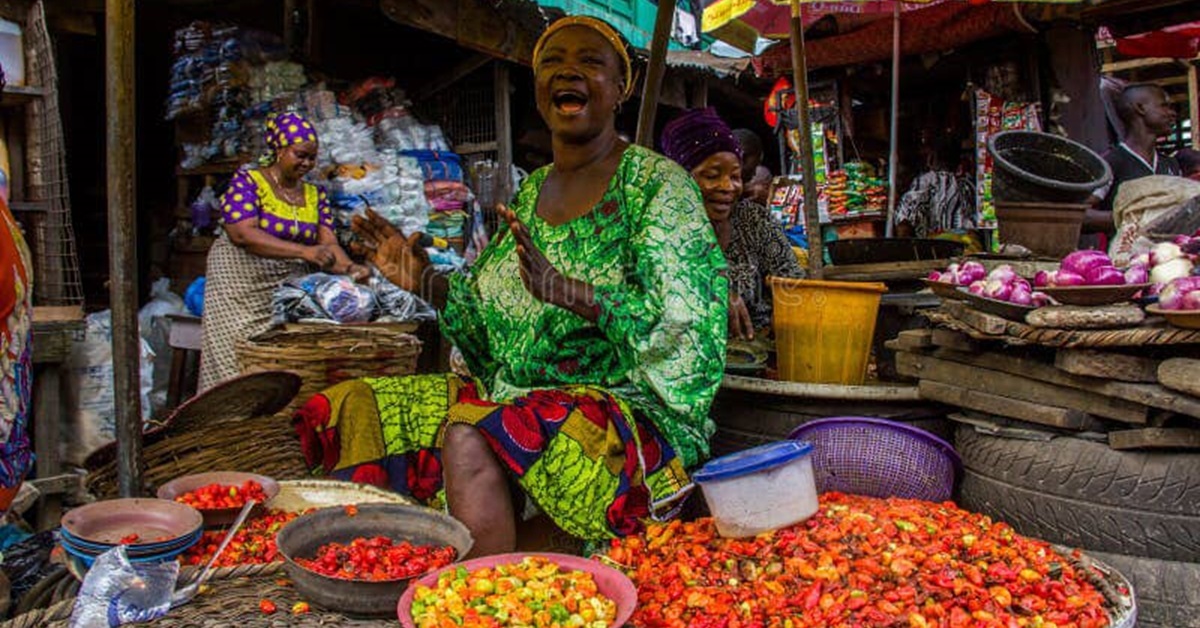This year, a unique meeting of Ramadan and Lent has presented Sierra Leone’s citizens with a double challenge of fulfilling their spiritual obligations amidst a struggling economy. The scorching March sun adds another layer of difficulty as Muslims and Christians strive to observe their holy practices in unison.
While these seasons are traditionally marked by joyous celebrations, the harsh reality of poverty is preventing many from fully participating in the fasts.
Interviews conducted by Sierraloaded in the Northern city of Makeni reveal a deep concern about the ailing economy’s impact on the observance of Ramadan and Lent.
A 62-year-old trader, Sallay Tamba Conteh, laments the skyrocketing prices of goods. The usual pre-fasting excitement is absent as people struggle to afford basic necessities. Conteh remarks on the lack of customers this year, acknowledging the shared hardship between sellers and buyers.
“The high cost of living in this country has affected us as well as our customers. Before this time, when they say Ramadan or Lent is around the corner, we the business people feel happy. Reason therefore, we knew people would buy a lot of things from us. Unfortunately, it did not happen this year. Since things are hard, customers did not buy from us as usual. We know that they, too, are battling with the hardship in the country. This is why Ramadan and Lent are not sweet this year,” Conteh said.
Speaking about the difference between this year’s fastings and those held in previous years, the grandmother of five said, “this is the most difficult Ramadan and Lent,” adding that some people are only fasting because it is part of their “religious beliefs” to abstain from food and drink at this point in time in order to please their maker.
She continued that although a few people went above and beyond to observe the Ramadan and Lent fasts, many people could not afford to fast this year because of the sluggish economy.
A middle-aged fishmonger, Zainab Kandeh told Sierraloaded some of the conversations she has had with few costumers in connection with the lousy economy and its impacts on Ramadan and Lent. The exorbitant prices have led many to express their disapproval and even consider abandoning the fast. The rising cost of goods creates a ripple effect, impacting both consumers and sellers who are forced to buy at inflated wholesale prices.
“The people who come to buy from us grumble that things are costly. And, even we the traders buy at expensive prices from wholesalers. Some customers, in fact, say they are going to quit the fasting, while others say they are going to continue with their fastings,” Kandeh said.
Mariatu Koroma, a self-acclaimed devout Christian, shares how the economic hardship, particularly the surge in rice prices, has forced her entire household to skip Lent.
“My family and l could not observe Lent this year because of the price of commodities. Imagine the cost of rice! Since l can’t afford to feed my little child and my niblings twice a day, l told them, include myself, to stay off fasting this year. Although some things like pepper and other commodities remained as they were, rice, which is the bedrock of everything, now costs an arm and a leg. Very expensive,” Koroma said.
The impact extends beyond individual households. Ibrahim Sorie Conteh, a miller, has had to raise his grinding fees in response to the general rise in living costs. He acknowledges the cascading effect of price increases, affecting not just sales and cash flow but also the number of people who can observe the fasts. “Things are hard in this period. All the grinding grains that we used to sell at Nle 2 have risen to Nle 4.” Conteh said.
Sierra Leone’s economic woes have cast a long shadow over this year’s Ramadan and Lent. What should be a time of spiritual reflection and communal celebration is instead a stark reminder of the challenges faced by the nation’s most vulnerable citizens.












Knowing the current economic situation of the country and the storylines of the northern people “Makeni”, highlighting the difficulties they’re going through during both religious seasons, my mind has reflect in similar ways considering the other provinces as well. Hardship is banging our nation at a rate beyond our expectations! Let’s pray for God’s intervention with no relent.
You just executed your task. I have not only had a fine read, but a complete grasp of the message. Indeed, l succumb to all the contributions submitted. It is a hard Ramadan and lent inclusively.